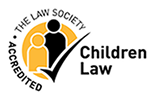Legal advice to minimise disruption to a child’s education
According to the Financial Times the average fee for independent schools is now over £15,000 a year for day pupils and £36,000 for boarders. This represents a substantial financial commitment over the education of a child, and often has to be taken into account when negotiating a financial settlement after divorce or separation.
Disputes can arise for many reasons, perhaps parents have different priorities or maybe one parent is finding it harder to cope with paying school fees and all the extra costs.
One of the largest bones of contention between separated parents when it comes to their children’s schooling is how the school fees will be paid. Often, even prior to separation, parents have made sacrifices in order to pay for their children’s school fees. With the division of pooled financial resources, the continued payment of school fees may no longer be met as easily.
If agreement cannot be reached between you and your former partner, you may be wondering where the law stands on who is responsible to pay these fees. You will be glad to hear that the court does have powers under the Matrimonial Causes Act to make a parent pay a contribution which can be used to pay school fees. In deciding if that power should be exercised, the court will look at a number of factors including:
- Where are the children currently educated? Are the children already in attendance at a private school, or is it intended they would move to one or start at a new one? If they already attend the school, they may have significant ties there. Moving to a new school now may cause unnecessary upheaval when they are already dealing with the upset of their parents separating.
- What were the parents’ intentions? Was it always agreed between the parents that their children would attend private school? Perhaps siblings already attend private school, or one of the parents went to that school.
- Affordability. If there are limited resources to pay for school fees, then a court is likely to view them as a luxury rather than a necessity. The basic housing needs of a child will always come as a priority and a court will not leave a parent in financial difficulty in order to meet school fees. The court will take into account all financial circumstances between the parents when deciding if a contribution order should be made. If one parent could easily afford to continue to pay school fees and the other parent has more limited resources, then the court is likely to make a contribution order against the wealthier parent.
Providing a private school education for your children may be important to you, but affordability is one of the main considerations. You may feel that it gives them the best start for their future career, however a court will not view a private education as a necessity.
Refusal to pay school fees
If a parent can afford to pay for their children’s school fees but decides not to continue paying, then the court is likely to be very critical of their failure to do so. An order under the Matrimonial Causes Act, forcing that parent to pay additional monies to the other parent who can then use them to cover the school fees, is highly likely. If the parent still refuses to pay despite a court order, then they could be deemed to be in contempt of court and face a fine or even imprisonment.
If school fees are not paid, then the school may decide to seek remedy under their contract with the parents. It is likely that both parents may have signed this contract and therefore both will be liable for any non-payment. If you are concerned that fees have not been paid then the school may run a bursary scheme. You could make enquiries to see if this could assist.
Ultimately, if fees continue to go unpaid, the school may have grounds to expel your child.
How we can help
We recommend that you obtain early expert legal advice in order that your children face as little disruption to their education as is possible.
For further information, please contact Hannah Byatt in the Family Law Team on 01480 702207 or email [email protected].
Subscribe for Updates













